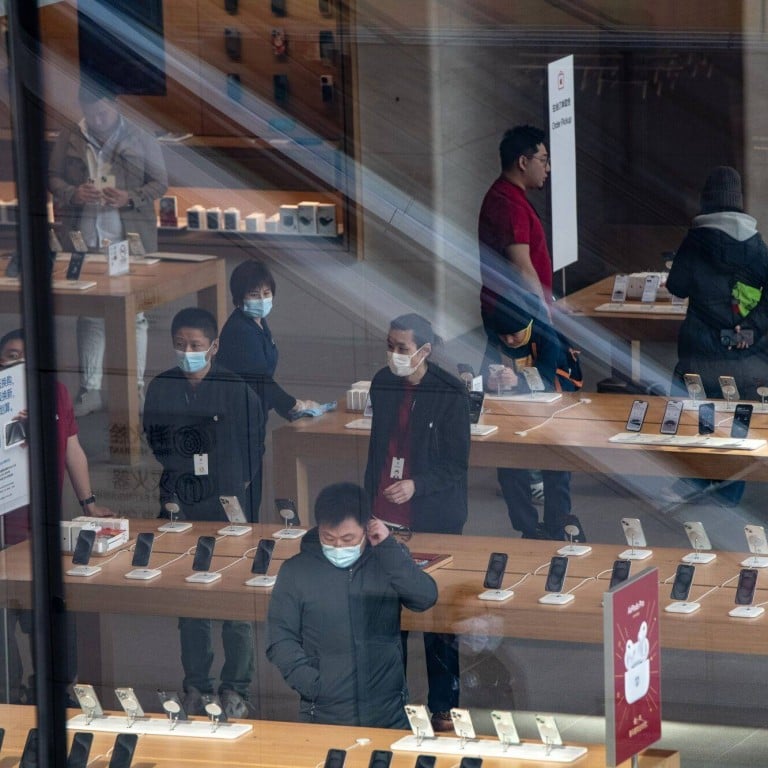
Apple up against stiff competition in China as rivals race ahead with generative AI and foldable designs
- With Chinese rivals gearing up to launch more high-end phones, Apple is under pressure to respond to market trends
- More generative AI technologies are expected later this year with the release of iOS 18
The prospects for Apple, which led China’s smartphone market at the end of 2023, remain cloudy amid the slow integration of artificial intelligence (AI) features within its iPhone and the current popularity of foldable phones in the country, say analysts.
With Chinese rivals gearing up to launch more high-end phones, Apple is developing prototypes for a clamshell, foldable iPhone, according to a report earlier this month by tech media outlet The Information citing an anonymous source.
Apple did not immediately respond to a request for comment on the issue.
The Cupertino, California-based firm did release an open source AI model called MLLM-Guided Image Editing (MGIE) earlier this month, which helps to edit photos based on text inputs by a user, according to a research paper on Github.
Although more generative AI technologies are expected later this year with the release of iOS 18, the slower relative pace of Apple in generative AI innovation has raised concerns as rivals rush ahead with self-developed large language models (LLMs) and high-end foldable handsets.
Huawei tablet shipments rise in 2023, bucking global decline
“Apple will always ensure a favourable experience for its users even if it is not the first to bring new technology to its products,” said Will Wong, senior research manager for client devices at IDC Asia-Pacific. “But the impact of being late [with AI] will [affect] its image as a tech leader, especially since the [China] market needs more wow factors now.”
Wong does not expect iPhone shipment growth to return to positive territory in China in 2024.
The stakes are high for Apple, which topped mainland China’s smartphone market in the fourth quarter last year, according to IDC data. After a long period of stagnation, the Chinese market is also widely expected to return to growth in 2024.
Despite leading the market, Apple reported a nearly 13 per cent drop in revenue from Greater China in the December quarter, with sales rising in other regions.
“The main reason for the decline is the return of Huawei and the fact that foldable phones have gradually become the first choice for high-end users in the Chinese market,” Kuo wrote in the post.
China’s smartphone market started off 2024 with Huawei Technologies returning to the No 1 spot for the first two weeks, according to Counterpoint data.
Separately, IDC data showed that Huawei returned to the top 5 on the mainland in the fourth quarter of last year with a 36.2 per cent jump in shipment volume.
“We expect Huawei to maintain its momentum and pose a challenge to Apple,” said Wong. “This will be mainly supported by Huawei’s strong local brand name and potential to bring more innovative technology, such as foldable-related products, to consumers.”
Still, Apple’s share of the segment fell from 75 per cent in 2022 amid the resurgence of Huawei on the mainland and gains by Samsung Electronics, according to the report.

